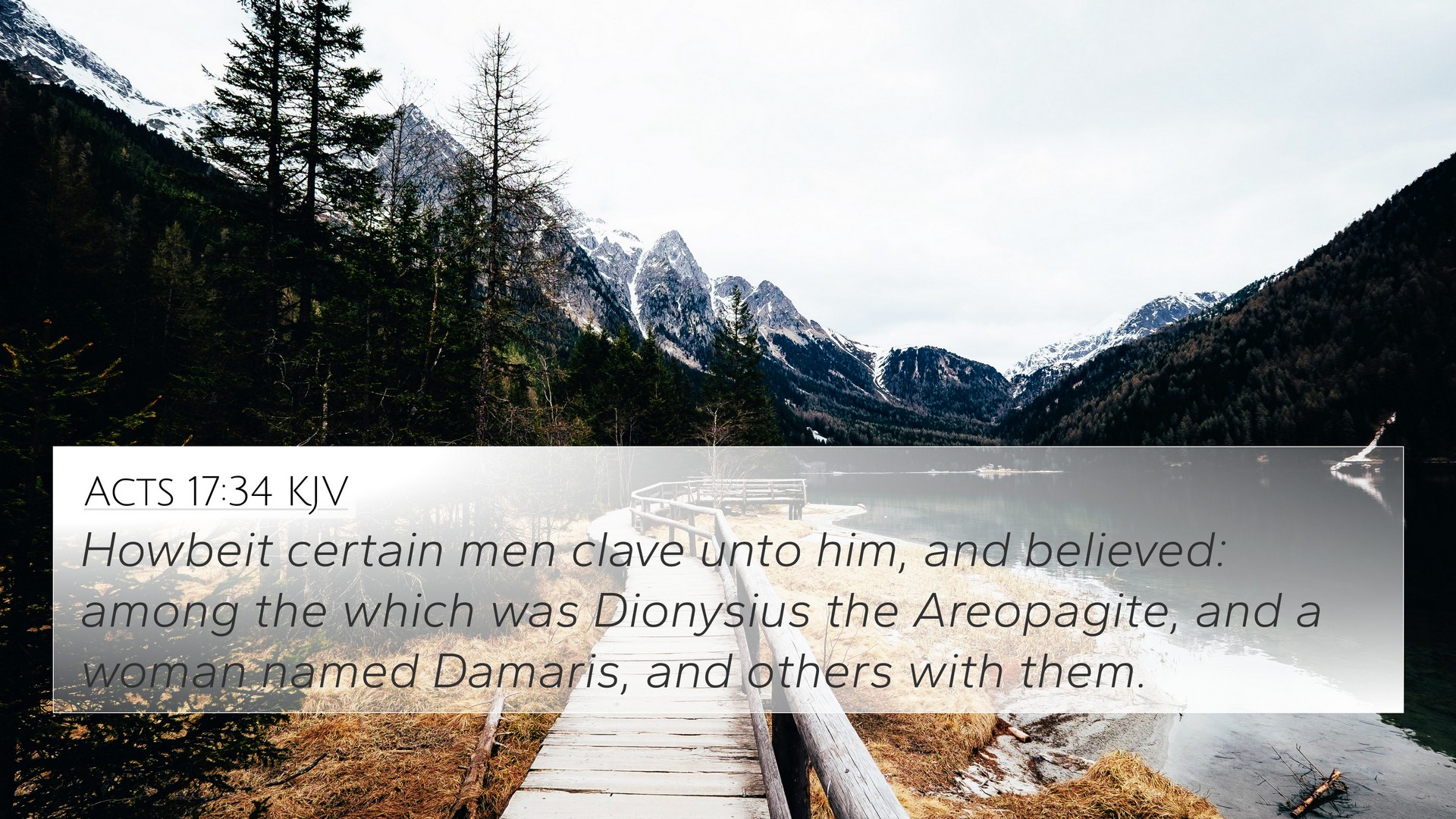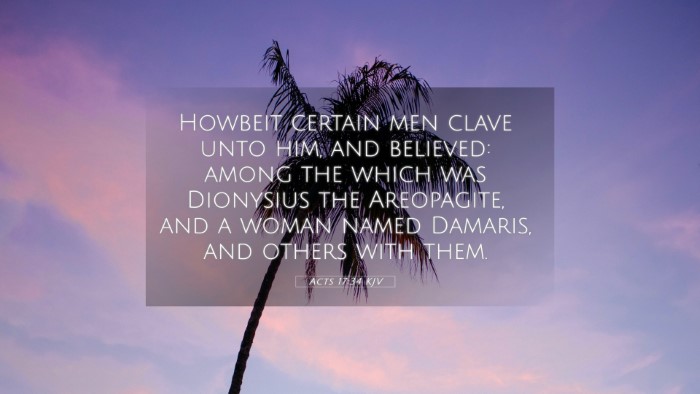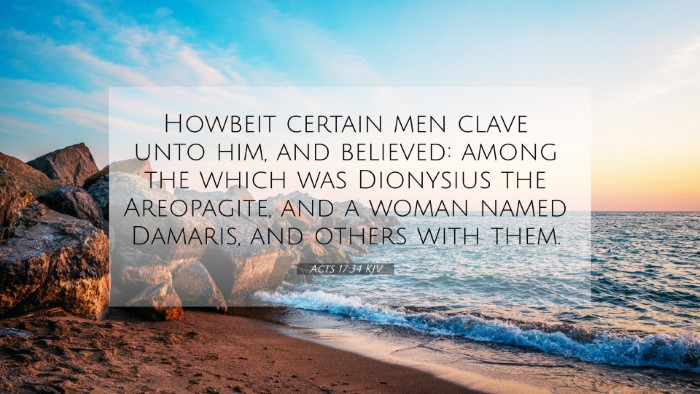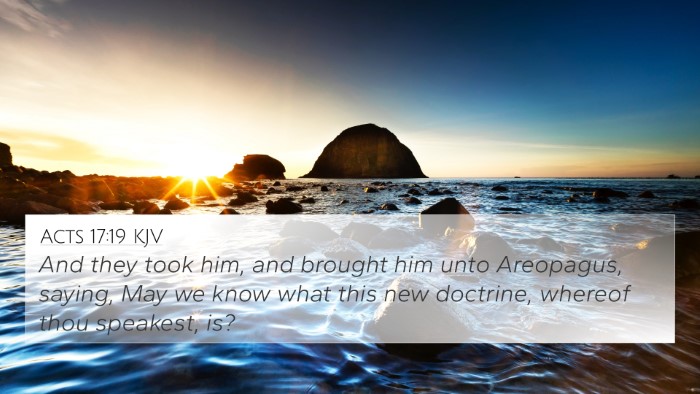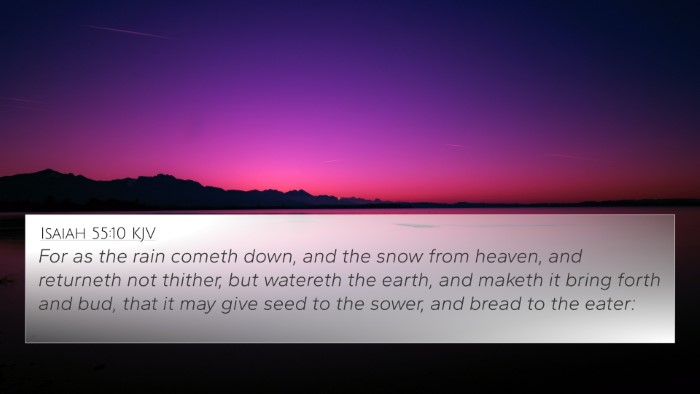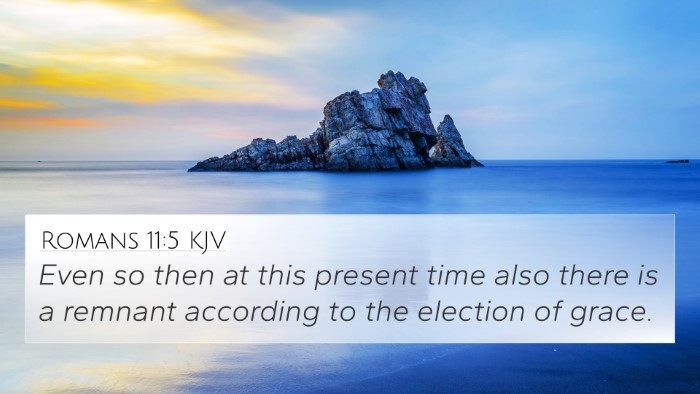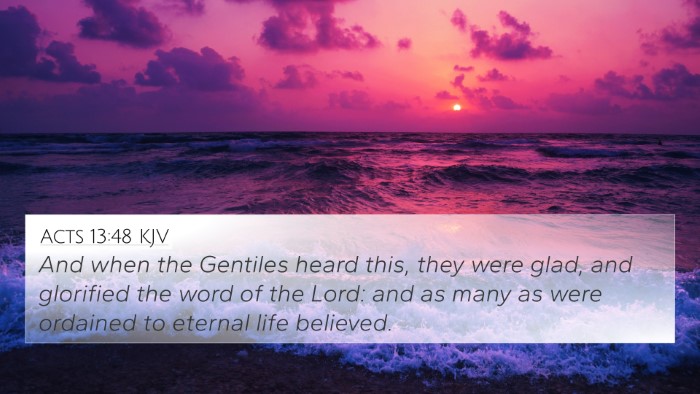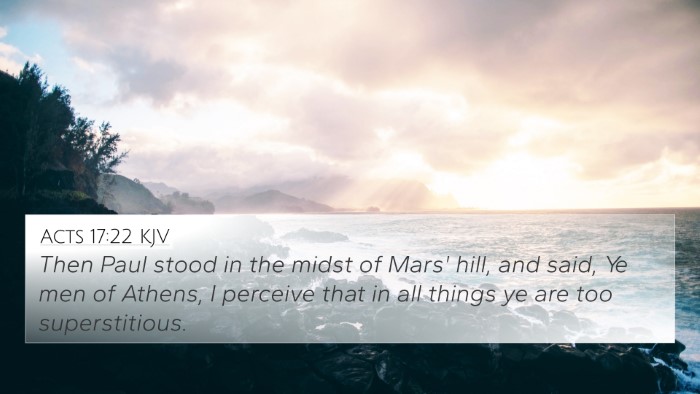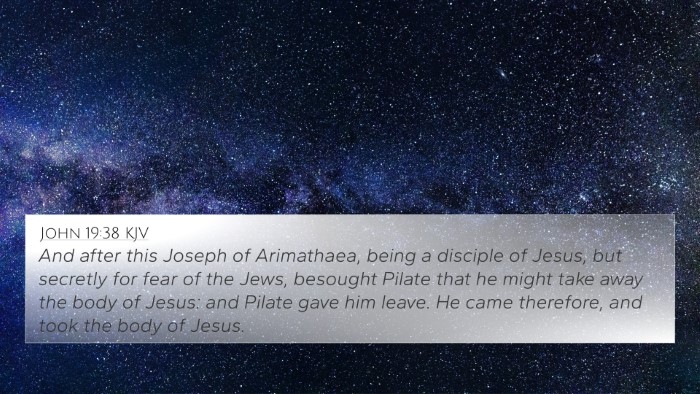Understanding Acts 17:34
Acts 17:34 says: "However, some men joined him and believed, among whom were Dionysius the Areopagite, a woman named Damaris, and others with them." This verse highlights the compelling nature of the Apostle Paul's preaching in Athens and the varied responses to his message.
Verse Context and Meaning
The context of Acts 17:34 finds Paul on his missionary journey to Athens, where he addresses the Areopagus, a council that was instrumental in Athenian governance and philosophy. His message emphasizes the resurrection of Christ, which was a radical concept to the Greek thinkers of the time. The reactions to his message are insightful, demonstrating the diverse responses to the Gospel.
Commentary Insights
-
Matthew Henry:
Henry notes that the mention of Dionysius and Damaris indicates the Gospel's reach into influential circles, suggesting that the faith was beginning to penetrate the heart of Athenian society. His commentary emphasizes that belief in the Gospel often comes through divine appointment.
-
Albert Barnes:
Barnes points out that the conversion of individuals like Dionysius, a member of the Areopagus, showcases the effects of Paul's mission. This conversion not only highlights an individual response but also signifies a potential for the broader spread of Christianity in a city known for its philosophical and religious pluralism.
-
Adam Clarke:
Clarke delves into the cultural implications of this conversion, explaining that believers from different social strata are essential for the growth of the early church. He emphasizes the inclusion of a woman, Damaris, illustrating the Gospel's appeal to all, breaking societal barriers.
Cross-Referencing Biblical Texts
Acts 17:34 can be connected with several other scriptures that reflect similar themes of belief, conversion, and the reach of the Gospel. Here are some pertinent cross-references:
- Matthew 28:19-20 - The Great Commission emphasizes spreading the Gospel to all nations.
- Acts 2:41 - Highlights the response of people to Peter's preaching on Pentecost, where 3,000 were baptized, showcasing the power of the message.
- 1 Corinthians 1:26-29 - Discusses how God chooses the foolish and weak to confound the wise, illustrating the unexpected nature of belief.
- Romans 1:16 - Paul proclaims that the Gospel is the power of God for salvation to everyone who believes, emphasizing inclusivity.
- John 10:16 - Jesus mentions having other sheep not of this fold, indicating the broad reach of His message.
- Galatians 3:28 - A declaration that in Christ, there is neither Jew nor Greek, neither slave nor free, nor male nor female, highlighting equality among believers.
- James 1:1 - References to the twelve tribes scattered abroad, showing the global dispersion of early believers.
Thematic Connections
This verse not only signifies individual responses but also reflects broader themes of:
- Divine Influence: Demonstrating that God directs hearts to embrace faith.
- Inclusivity of the Gospel: As seen through both a man of status and a woman responding.
- Cultural Impact: Paul’s mission in Athens illustrates the intersection of faith and culture.
Tools for Bible Cross-Referencing
Understanding how Bible verses connect can greatly enhance one’s study. Below are some tools you may find beneficial:
- Bible Concordance: Find references and themes quickly.
- Bible Cross-Reference Guide: A structured tool to locate cross-references.
- Bible Study Software: Use apps that provide integrated cross-reference capabilities.
Conclusion
Acts 17:34 serves as a powerful reminder of the transformative power of the Gospel and its ability to reach individuals across societal lines. In summary, the responses to Paul’s preaching reveal the heart’s readiness to embrace faith amidst philosophical debate. By utilizing cross-referencing and thematic studies, believers can deepen their understanding of Scripture and the interwoven truths presented throughout the Bible.
